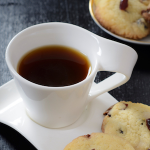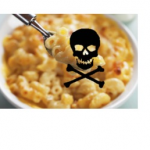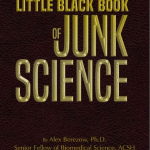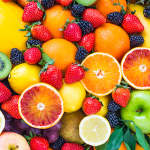A study published in The Lancet concludes that one additional drink per day increases a person's risk of stroke, coronary disease, heart failure, fatal hypertensive disease, and fatal aortic aneurysm. Alcohol may not be to blame, but we can't determine this because the authors didn't even bother to collect data on it.
Health Scares Vs Health Threats
A California judge is going to determine whether or not coffee causes cancer. Think about that. We live in a society where judges and lawyers – not medical doctors or scientists – get to determine the credibility of biomedical research. And guess who paid in the process?
Evidence indicates that dogs can become infected with human-adapted influenza strains, making this incredibly concerning. When two different influenza strains infect the same host, the viruses can swap genes, a process known as genetic reassortment. This can produce devastating influenza pandemics.
Chronic wasting disease, which is a condition nearly identical to mad cow disease, has been detected in deer all across the United States.
When it comes to infant feeding, recent survey data from the Centers for Disease Control does more to add to the guideline burden than benefit a baby – let alone the parent.
Time Magazine's Alice Park wrote a bizarre "letter' in JAMA, which apparently hoped to scare us about a group that found more glyphosate in urine samples than they expected. Her primary source: A guy with a "Ph.D" from an unaccredited institution who writes about yogic flying and ghosts.
The King County Health Department, which serves mostly the city of Seattle and its suburbs, has recently earned a reputation for being driven by politics rather than by evidence-based medicine or common sense.
Ever on the alert to protect consumers from non-existent threats, E.U. member states have voted to set legal limits on the amount of acrylamide in foods. Acrylamide, of course, is the chemical naturally formed when foods containing large amounts of carbohydrates are cooked at high temperatures — think fried and baked potatoes and bread. And we predict that no-one's health will benefit from this ruling.
"Science" took a walk on the wild side in a recent New York Times piece. It tried to tell us that the tiny amount of a class of chemicals found in macaroni and cheese (and everywhere else on Earth) is going to wreak havoc with our sex hormones. It's so bad, it's almost funny.
"The Little Black Book of Junk Science is just what it sounds like," says Dr. Alex Berezow, Senior Fellow in Biomedical Science for the Council and author of the work. "Everyone talks about fake news but it is a little harder to know what junk science is if you are not an expert. This book is a pocket-sized reference that will allow the public to do just that. Family barbecues will never be the same!"
Spring is just around the corner, and with it comes another growing season. Eating a diet rich in fruits and vegetables can help lower calorie intake; reduce risks for heart disease, obesity and Type 2 diabetes; and protect against certain cancers.
With all these benefits, why do some consumers choose to avoid produce? Approximately three-quarters of people in the U.S. don’t eat enough fruits and vegetables, according to the 2015 Dietary Guidelines for Americans.
Every scientific paper should be required to answer a simple question before it's published. So prior to considering whether ingesting too many polyunsaturated fats (e.g., fish and foods cooked with vegetable oil) will make women lazy, TV-watching diabetics, an elementary-school query must first be asked: Does that even make sense?











